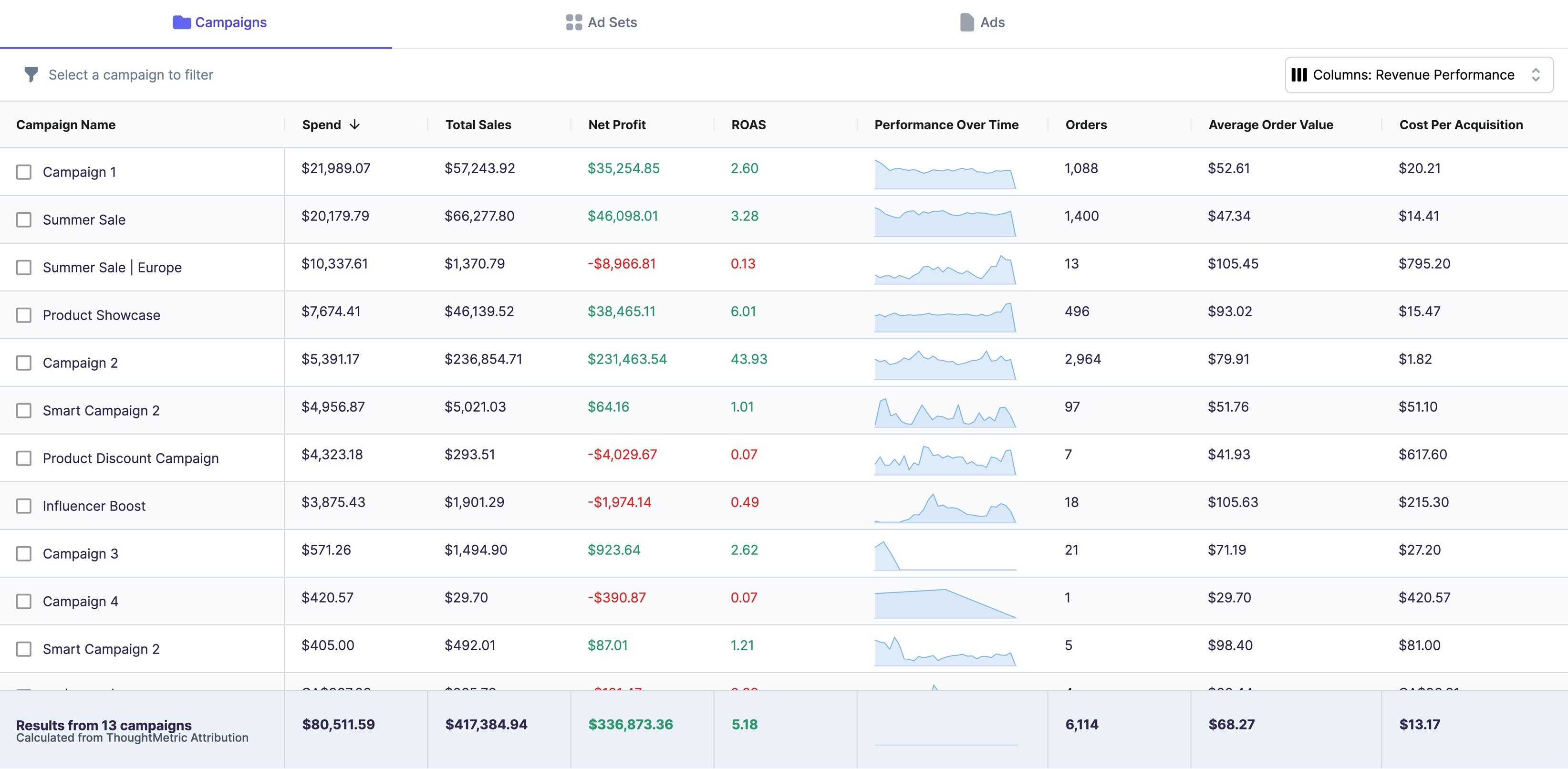Managing your Facebook advertising can be a daunting task, but it's essential to ensure that your ads are profitable. Calculating profit margin is a crucial step in the process. In this article, we'll cover everything you need to know about calculating profit margin in Facebook Ads Manager.
Understanding Profit Margin in Facebook Advertising
Before diving into the calculations, it's essential to understand what profit margin is. Simply put, profit margin is the difference between your revenue and expenses. It's the percentage of revenue that remains after deducting the cost of goods sold, operating expenses, and taxes. In Facebook advertising, profit margin is the amount of money you make after deducting the cost of advertising.
For instance, if you spend $100 on Facebook ads and make $200 in revenue, your profit margin would be 50%. This means that for every dollar spent on advertising, you make $0.50 in profit.
What is Profit Margin?
Profit margin is expressed as a percentage, and it varies from one business to another. It's vital to calculate profit margin to determine the profitability of your ad campaigns. Knowing this figure will help you decide if you need to adjust your ad spend or targeting to increase profitability.
Moreover, calculating profit margin is crucial for long-term business success. It helps you understand how much profit you're making from each sale and how much you can afford to spend on advertising to acquire new customers while still remaining profitable.
Importance of Calculating Profit Margin in Facebook Ads
Calculating profit margin is essential because it helps determine the success of your ad campaign. Failure to calculate profit margin can lead to significant losses since you may continue running ads that are not profitable. On the other hand, calculating profit margin helps identify which ads are performing best and can help you adjust your strategy to maximize returns.
For example, suppose you're running two Facebook ad campaigns with different targeting options. By calculating the profit margin for each campaign, you can identify which one is more profitable and allocate more of your advertising budget towards it. This will help you maximize your returns and increase the overall profitability of your ad campaigns.
In conclusion, understanding and calculating profit margin is crucial for success in Facebook advertising. It helps you make informed decisions about your ad spend, targeting, and overall strategy, ultimately leading to increased profitability and long-term success for your business.
Setting Up Your Facebook Ads Manager
Are you ready to take your business to the next level? One of the best ways to do so is by setting up a Facebook Ads Manager account. With this tool, you can create targeted ads that reach your ideal audience, increase brand awareness, and ultimately boost sales. Here's how to set it up:
Creating a Business Manager Account
The first step is to create Facebook's Business Manager account. This account allows you to manage your ad account and connect it to your Facebook page. To create a Business Manager account, follow these steps:
- Go to business.facebook.com/create
- Fill in the required fields, including your business name, email address, and name.
- Click 'Create Account' and follow the prompts
Once you have created your Business Manager account, you will have access to a wide range of features that can help you manage your business more effectively. For example, you can add team members to your account, assign roles and permissions, and manage multiple ad accounts from a single dashboard.
Navigating the Ads Manager Interface
Once you have a Business Manager account, you can access the Ads Manager interface. This is where you will create and manage your ad campaigns. It's important to take some time to navigate through the interface and get familiar with its features. Here are some key things to look out for:
- The 'Campaigns' tab, where you can create and manage your ad campaigns
- The 'Audience' tab, where you can define your target audience based on factors such as location, age, interests, and behaviors
- The 'Budget' tab, where you can set your daily or lifetime budget for each campaign
By understanding these features, you can create more effective ad campaigns that reach the right audience and generate a higher return on investment.
Connecting Your Ad Account and Payment Method
The final step in setting up your Facebook Ads Manager account is to connect your ad account and payment method. This will allow you to start running ad campaigns and paying for them. To connect your ad account and payment method, follow these steps:
- Click on the 'Settings' tab in Ads Manager.
- Select 'Ad Account Settings' and then click on 'Payment Settings.'
- Select your preferred payment method or add your credit card or PayPal account.
Once you have connected your payment method, you can start creating ad campaigns and reaching your target audience. With the right strategy and a little bit of experimentation, you can use Facebook Ads Manager to take your business to new heights.
Calculating Profit Margin for Individual Ads
Now that you have set up your Ads Manager account let's dive into calculating profit margins for individual ads:
Identifying Key Metrics for Profit Margin Calculation
The essential key metric for calculating profit margin for individual ads is 'Return on Ad Spend' (ROAS). ROAS is calculated by taking the revenue generated by the ad, which is the product of the conversion rates and the average order value, and dividing this amount by the ad's cost.
After identifying the key metrics, it's time to analyze your ad's performance data. This data is available on Facebook Ads Manager under the 'Reporting' tab. Analyze the metrics to identify trends, profitability, and areas of improvement.
Calculating Profit Margin for a Single Ad
The final step in calculating profit margin for individual ads is to subtract the ad's cost from the total revenue generated, dividing the result by the ad's cost and then multiplying by 100. That gives you the profit margin percentage.
Calculating Profit Margin for Ad Campaigns
Calculating profit margins for ad campaigns involves grouping ads by campaign and then analyzing the data. Here's how to do it:
Grouping Ads by Campaign
Group your ads into various campaigns within the Ads Manager interface. This way, you'll be able to analyze the performance of each campaign and identify which ones are profitable.
Once you have grouped your ads, it's time to analyze each campaign's performance data. Identify the ROAS of each of the campaigns and the total cost of advertising for each campaign.
Calculating Profit Margin for an Entire Campaign
Calculating profit margin for an entire campaign is similar to calculating profit margin for individual ads. Subtract the total cost of advertising from the total revenue generated, divide that result by the total cost of advertising, and then multiply by 100 to get the profit margin percentage for the campaign.
Conclusion
Calculating profit margin in Facebook Ads Manager is an essential step in ensuring that your advertising efforts are profitable. Follow the steps outlined in this article to set up your Ads Manager account and calculate profit margin for both individual ads and entire campaigns. By doing this, you'll be able to identify high-performing ads, adjust your strategy, and maximize your returns.





